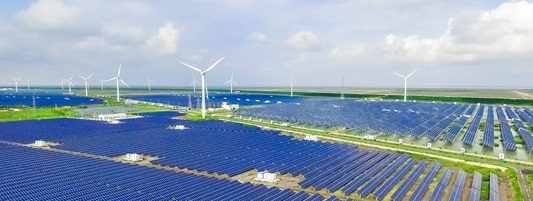Contact
Send a messageOverview
Countries with high shares of renewables in their energy systems face different challenges in assuring affordable, reliable and secure energy supplies. Collaboration among governments and other key stakeholders can effectively address challenges and find practical solutions while also guiding countries on a similar path.
The Collaborative Framework on “Enhancing Dialogue on High Shares of Renewables in Energy Systems” was established to create a common forum to exchange national experiences and promote technical cooperation among countries and key relevant actors.
The scope of the Collaborative Framework will be addressed in the form of workstreams aiming to:
- Strengthen energy markets and regulations to facilitate the penetration of renewables and secure stable regulatory frameworks that contribute to long-term investment security;
- Reinforce energy system planning through effective use of long-term energy scenarios;
- Optimise operation of energy systems with high penetration of variable renewable energy;
- Develop cross-sectoral strategies to align renewable energy development in support of other sustainable development goals, such as water, food, and health;
- Encourage cross-border interconnections to promote cross-border trade of renewable electricity;
- Advance energy system innovation introducing technical, economic, financial and social solutions for cost-effective integration of renewable energy.
The three pilot workstreams, proposed by and agreed upon by Members, are cross-border interconnections. (ii) energy system operation and (iii) energy system planning.
The first technical meeting of the collaborative framework was held in May 2021 on cross-border interconnection to promote trade of renewable energy, which discussed the opportunities and challenges in developing cross-border interconnections and regional markets based on renewables, in support of the transition to clean energy aligned with the climate and sustainable development objectives.
The second technical meeting on Energy System Operation was held on 20 October 2021, which analysed innovative ways of operating the electricity system, allowing the integration of higher shares of variable renewable power generation.
The third meeting on Energy System Planning was held virtually on 2 June 2022. The meeting facilitated exchange of experiences and best practices regarding the development and use of “Long-term Energy Scenarios Network” (LTES) and innovative scenario planning approaches.
The fourth meeting on energy markets and regulations was held virtually on 20 October 2022. The meeting featured deep-dive panel discussions from the perspective of different stakeholders on integrated energy markets and regulations to facilitate the penetration of renewables and secure stable regulatory frameworks that contribute to long-term investment security for achieving high shares of renewables.
The fifth meeting on cross-sectoral strategies was conducted in a hybrid format on 22 May 2023. The meeting highlighted that the integration of renewable energy for productive use provides great cross-sectoral impacts on agriculture, livelihoods, and socioeconomic development. The meeting addressed different aspects of productive use of energy in the agri-food sector, including technology options, policy and regulations, delivery and business model and financing.
The sixth meeting on energy system innovation was held in a hybrid format on 27 September 2023 within IRENA Innovation Week 2023. The meeting shared experiences on energy system innovation, with a specific focus on innovative technology and business solutions for cost-effective integration of high shares renewables in energy system. The meeting deep-dived into different aspects of innovation trends, changing roles in future energy systems, enabling technologies, business models, market design, and system operation.
Related Events
More eventsModalities
-
Participation
- Meetings of the Collaborative Framework will be open-ended to all IRENA Members and States in Accession, as well as members of the private sector, associations, research communities, International Governmental Organisations and Non-governmental Organisations, among others, involved in this thematic area of work.
-
Facilitators/Co-facilitators
- The Facilitator/Co-Facilitators will be selected from the Membership, will coordinate the deliberations of the Collaborative Framework and may serve for a period of one / two years.
- A proposal to designate the El Salvador and Japan as Co-Facilitators of the Collaborative Framework on “Enhancing Dialogue on High Shares of Renewables in Energy Systems” was put forward and supported by several Members. The El Salvador and Japan accepted their designation as Co-Facilitators for the period of two years, starting in 2022.
-
Internal working groups
- The Collaborative Framework may, as needed, form a group(s) of core members to support in-depth discussions on specific topics of interest.
-
Reporting
- The Facilitator/Co-Facilitators will normally report to one IRENA Council per year, or more as may be necessary, with a view to informing the Membership on advances made with its workplan. Such reports may focus on experience and best practices identified, recommendations on specific thematic areas of work, areas of research, technical reports, etc.
-
High-Level meetings
- Ministerial/High-Level meetings of the Collaborative Framework may be held, as necessary, in the context of the work of the Assembly, annually preceding or post-Assembly, as mandated by and in the context of the work of the Assembly.





